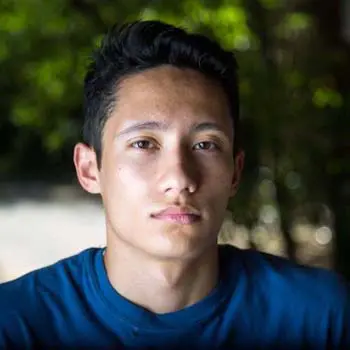RISE PERSPECTIVE
September 11, 2017
College Student-Athletes Can Drive Meaningful Change
By Ezra Baeli-Wang

It took me all four years as a student-athlete at the University of North Carolina at Chapel Hill to realize that activism and protest are the truest expressions of patriotism. No one seeks to change that which means nothing to them. To challenge is to care.
People care about athletics. People care about their schools and their students, and the communities that find energy and livelihood in watching, and playing, sports. Athletics unifies and equalizes in a way that few things can. Nowhere is the playing field more level than on an actual playing field; race, creed, gender, religion, sexual orientation and socioeconomic status have no bearing on victory or defeat. Teams that want to succeed recognize that they must learn to navigate the complex dynamics that come with diversity of experience and thought, and they learn quickly that discrimination has no place in a cohesive community pursuing excellence.
For many student-athletes, particularly in revenue sports, such as football, and men's and women's basketball, where athletes of color are disproportionately represented, athletics lends a powerful voice to demographics that are all too often silenced. Players are granted opportunities to lead and make real-time decisions with enormous reputational, and potentially financial, implications for themselves, their teams and their institutions, and that sense of responsibility and confidence carries over to other areas of their lives.
In my junior year at Carolina, the North Carolina State Legislature passed HB2, a bill that stripped members of the LGBTQ community of protections against discrimination. In the following days, I marched with students protesting the bill's passage, co-authored an op-ed with a cross-country runner and lobbied the ACC to follow the NCAA's precedent in withdrawing its championships from the state. But it wasn't until almost a year later, when the NCAA warned lawmakers that they would forfeit the state's eligibility to host championship events in the absence of HB2's repeal, that I fully recognized the unique resources made available to me through athletics.
I reached out to the other Student-Athlete Advisory Committee presidents (two of whom are also athletes of color) at ACC schools in North Carolina and asked them to co-sign an open letter I had penned to the legislature calling for a repeal. I started a petition for students in North Carolina against HB2 and recruited athletes and administrators to help me set up and staff a booth in the center of the student-athlete lounge collecting signatures and spreading our message. People listened. Our petition garnered more than 1,000 signatures in a month, and the letter was republished by ESPN, The Associated Press and other major media outlets.
My story is not unique. From professional football and basketball players sitting during the national anthem or wearing shirts protesting police brutality, to volleyball players kneeling at West Virginia University and members of the University of Missouri's football team joining arms with a graduate student protesting administrators' response to race-related complaints, athletes everywhere are embracing the power of their platform. College sports provide young people of color with a network of peers and a degree of visibility that enables them to explore the ways in which they can make meaningful change. At a time when many Americans are struggling to confront the fact that we don't live in a post-racial society, it is critical that these athletes feel empowered by the institutions to which they dedicate so much of their time and talent.
It is the responsibility of university and athletic administrators to recognize that the young men and women who make up their sports teams are extraordinarily well positioned to be important, unifying leaders at a critical point in our nation's history. To tout athletics alone as a moderate, apolitical testament to the importance of diversity is no longer tenable. To simply permit student-athletes to participate vocally in their communities without seeking new and creative ways to amplify their voices is not enough.
It's time we encouraged those most affected by systemic oppression to employ the leadership skills that athletics so capably endows and lead the conversation.
Ezra Baeli-Wang is an operations analyst with Vigilint Expeditionary Solutions in Raleigh, North Carolina. He graduated this year from the University of North Carolina at Chapel Hill, where he was a member of the fencing team and served as co-president of UNC's Student-Athlete Advisory Council (SAAC) and president of the Atlantic Coast Conference SAAC.
Our
Partners
Stay
In Touch
Follow us on social media.